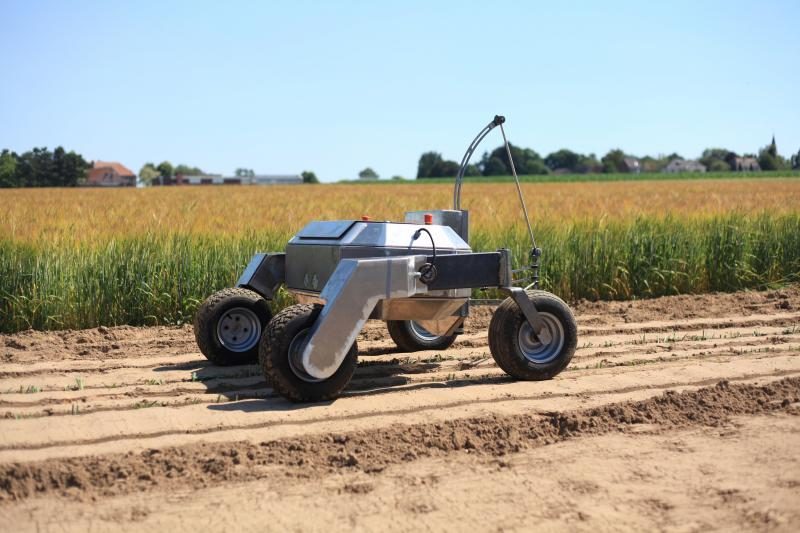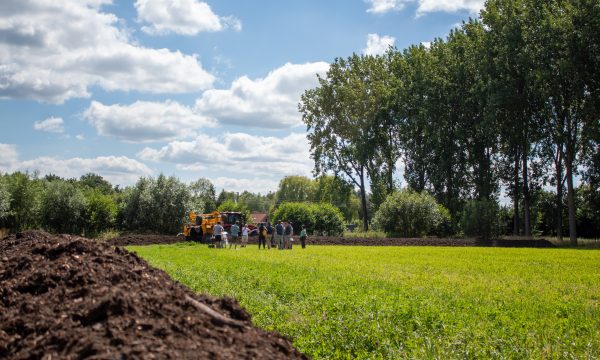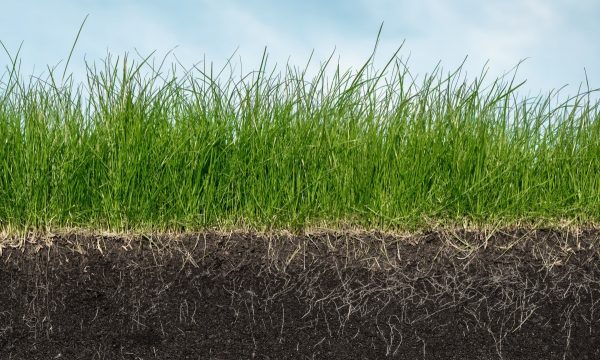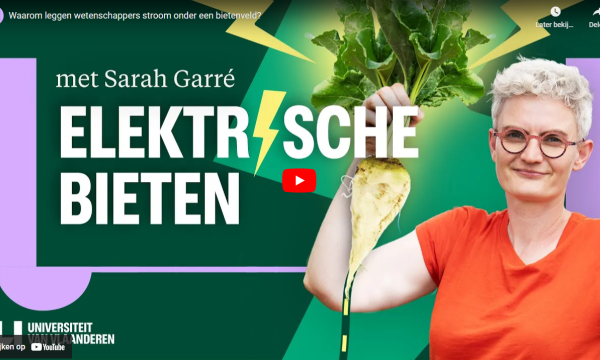Project news The CSA robot for easier mechanical weed control in organic bedding

Automated weed control in vegetable beds: that is the goal of a new research project of Flanders Research Institute for Agriculture, Fisheries and Food (ILVO) and the AIRO research group (Ghent University-Imec). Their aim is to develop a multi-purpose and affordable robot platform specifically for vegetable cultivation on beds, which is typical for Community Supported Agriculture (CSA) farms. The goal is to reduce the amount of manual labor required in small-scale organic farming.
‘Made for’ and ‘made by’ the farming community
Exploratory discussions with six CSA farmers, all closely involved in the project, revealed that mechanical weed control is still highly labor-intensive. Correction treatments in particular involve a high degree of manual labor. The technology has not been standing still, however: there are already robots on the market that are specifically developed to automate these repetitive, labor-intensive tasks. However, the existing robot platforms are expensive and have limited flexibility. Those factors represent major stumbling blocks, especially for smaller growers. A multi-purpose, affordable robot platform that is able to weed as well as perform other tasks would be a big step forward.
Some growers have developed semi-autonomous machines themselves that are tailored to their operations, supported by initiatives such as the Boer Bricoleur project of the Belgian organic growers consortium CCBT and the French project L'Atelier Paysan. However, the development of a fully automatic robot often requires a multidisciplinary approach that is not always available on a farm. To address this need, ILVO and the AIRO lab of Ghent University have joined forces to translate the expertise of knowledge centers into practice and to help small-scale organic farms automate their operations.
What does a CSA robot look like?
The design of the CSA robot is adapted to organic bed cultivation. In addition to the width of the beds, other factors were taken into account: the height of the crop, uneven terrain and other technical requirements discussed with the farmers. The robot is as light as possible to reduce soil compaction and allow transport by trailer. To keep the wheels in contact with the ground as much as possible, a differential suspension was developed based on the design of the Mars rover. The robot is equipped with two affordable RTK-GPS antennas that can be used with the Flemish FLEPOS correction service to determine position and orientation within centimeter accuracy. Based on this information, the robot is able to navigate autonomously over the beds. The choice for two-wheel drive control helps to reduce the price of the basic robot platform.

The tools
In July 2020, the partners began development of task-specific tools that can be linked to the multi-purpose robot platform. Initially, the project will address weed management in red beet but the ultimate goal is to link as many tools as possible to the basic platform. Ideally, the farmers will be able to construct these tools themselves, as the more functions the robot has, the higher the farmer’s return on investment. Furthermore, the project partners are investigating how all data collected by sensors can be clustered in order to detect pests, diseases, drought symptoms or other anomalies at an early stage and to automatically monitor crop growth.
Follow-up project already on the horizon
The current project runs until July 2021. Both the project partners and the growers wish to continue working together on robotics for small scale organic farms, and thus intend to develop a follow-up project. The idea is to create an open knowledge ecosystem in which interested growers, constructors, knowledge and practice centers can jointly develop customized robots and tools for small-scale organic farms.



